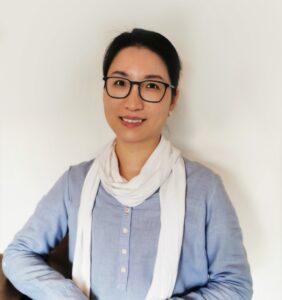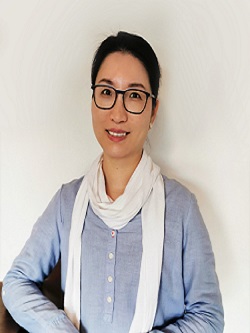Acupuncture
Acupuncture is a Traditional Chinese Medical modality used for thousands of years with its usage continuing to spread all around the world. With very few complications and minimal pain when administered by a qualified practitioner, it is able to alleviate and treat several health conditions and maintain optimal health.
Acupuncture is a non-invasive technique which involves inserting a single-use metallic needle, as thin as your hair, into the skin of specific points lying on the body. These needles are then stimulated with the hand or electrically to generate a ‘de qi’ sensation, a feeling of tingling, dull-ache, throbbing or heaviness, which signifies the ‘awakening of Qi’, the precursor to initiating or maintaining the body’s homeostasis.
As a holistic complementary therapy, each client is assessed by our Acupuncturist and treated as an individual to ensure that treatment caters for their specific needs.
Our Acupuncturists are particularly interested in:
- Frozen Shoulder
- Maintaining general wellbeing
- Boosting the immune system
- Digestive conditions
- Headaches
- Stress and anxiety
- Chronic Fatigue
- Menopause
- Weight loss
- Musculoskeletal conditions: Neck Stiffness, Tennis/Golfer’s Elbow, Sciatica and Back pain
Our Acupuncturists are AHPRA registered and are members of ATMS.
To answer more of your questions about Acupuncture visit FAQ here.
Meet our Acupuncturists:
 Josephine holds a Bachelor degree of Health Science (in Traditional Chinese Medicine) from the University Technology of Sydney (UTS). Prior to becoming a Traditional Chinese Medicine practitioner, she has experienced firsthand how difficult it was to find the right doctor and get sound advice and real help for different health issues. This set her on a path of discovering the importance of holistic health care, and also instilled a passion to be able to help others in practical ways.
Josephine holds a Bachelor degree of Health Science (in Traditional Chinese Medicine) from the University Technology of Sydney (UTS). Prior to becoming a Traditional Chinese Medicine practitioner, she has experienced firsthand how difficult it was to find the right doctor and get sound advice and real help for different health issues. This set her on a path of discovering the importance of holistic health care, and also instilled a passion to be able to help others in practical ways.
During her bachelor course in UTS, Josephine also had training experience at the Chengdu University of Traditional Chinese Medicine Hospital where Chinese medicine and Western medicine is integrated for patient care in a hospital setting.
As a Traditional Chinese Medicine practitioner, Josephine applies individualised treatment methods, introduces modified lifestyle and dietary adjustments for restoring the body to a homeostasis state. Her treatment method aims more in optimising the body’s functions in preserving and cultivating health, besides managing signs and symptoms.
Josephine is interested in women’s health, where there are important seasons that should be cared for with love and professional advice. Menarche (first menstruation) in a woman’s early years is the first chance to reset the scale weight at the balance level. The next important season is pregnancy, in preparation of a pregnancy and postpartum health restoration. Menopause management is also an important season for maintaining good health in the golden years.
Josephine’s skillset includes acupuncture, cosmetic acupuncture, cupping and herbal medicine.
To book an appointment with our Acupuncturist call 02 9453 3046 or book online here
Frequently Asked Questions
Why should I see an Acupuncturist?
- Most commonly, patients have a condition that does not respond to conventional care. They seek a treatment option that can effectively provide a solution to their healthcare issue.
- Conventional treatment often requires drugs with undesirable side effects or an unwanted surgery to treat the condition; therefore an alternative medical option is sought.
- Patients are taking many western drugs that are expensive, have side effects or interfere with one another. Often Chinese medicine can treat these conditions so that the drugs can be withdrawn.
- Patients who seek a natural, holistic medical approach to healthcare.
Does Acupuncture hurt?
Is Acupuncture safe?
Only single use, sterilised, fine gauge needles are used during treatments.
In Australia, practitioners usually have at least 4 years of full-time practical experience whilst they complete a university level Bachelor qualification. They undergo thousands of supervised clinical practice hours in addition to both Western and Eastern medical study.
What does a treatment involve?
Each treatment usually lasts between 45 minutes to 1 hour and we kindly ask you to arrive ten minutes early to your first appointment. We advise that you do not come on an empty stomach and you are welcome to bring any relevant tests results or scans with you to your appointment.
How many consultations are usually required?
How does Acupuncture work?
There are thousands of published randomized-controlled trials demonstrating the efficacy of Chinese Medicine for treating pain (lower back pain, sporting injuries, migraines, osteoarthritis) but also many other conditions (infertility, bladder dysfunction, anxiety and allergic rhinitis).
Modern technology (Magnetic Resonance Imaging, Thermography, Blood Tests etc) has complemented and added to our understanding of Chinese Medicine best practice. The clinical and anecdotal evidence is clear and frequently experienced by practitioners and patients so the question is no longer about whether or not Chinese Medicine works but rather how it works.
What is Qi?
Chinese philosophy and medicine pre-dates modern medical terminology, thus the concepts of Chinese philosophy do not correspond specifically to western medicine terminology. The theory is that Qi circulates around the body via channels or meridians and in a state of complete health, this process occurs smoothly and appropriately to keep our minds and bodies functioning optimally.
Factors such as age, overwork, environmental factors, stress/fear, trauma and poor nutrition interrupt or inhibit the flow of qi resulting in disease, illness or pain. The aim of Chinese Medicine is to nourish qi where it is deficient, move qi where it is blocked and subdue qi where it is in excess. The overall concept here is balance – to restore homeostasis by balancing yin and yang.
Is Acupuncture covered by private health insurance?
Is Acupuncture covered by Medicare?
Body of Life Health Centre is a provider of excellence in health services and education,
servicing the Northern Beaches and North Shore.
We exist to equip you to live your healthiest and best life. We are a multidisciplinary team of health practitioners that provide a range of services to you, your family and the local community.
Book in to see an Osteopath, Chiropractor, Psychologist, Hypnotherapist, Massage Therapist, Acupuncturist or Dr of Chinese Medicine with us because we can support you to make the changes you need to feel your best!
We inspire, equip, educate and support our clients on the Northern Beaches and North Shore to make the changes they need to feel their best!

